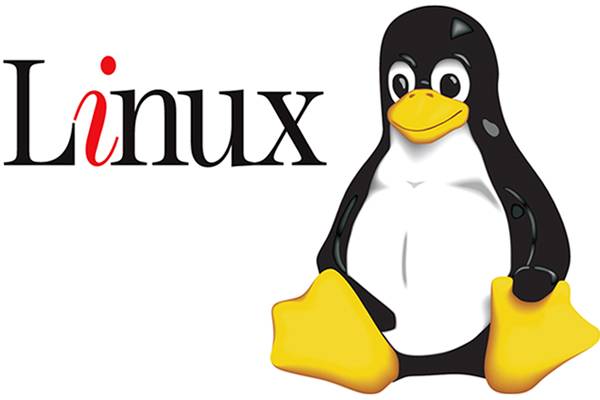 NEWS
NEWS
 NEWS
NEWS
 NEWS
NEWS
![]() More and more companies contribute actively to the Linux kernel optimizations. The latest edition of Linux Development Report shows that companies that focus on mobile technology play an increasingly larger role in the development of the Linux kernel.
More and more companies contribute actively to the Linux kernel optimizations. The latest edition of Linux Development Report shows that companies that focus on mobile technology play an increasingly larger role in the development of the Linux kernel.
The latest Linux Foundation report “Linux Kernel Development: How Fast It is Going, Who is Doing It, What They Are Doing and Who is Sponsoring It,” focused on the quantity of changes and the IT companies from which these changes have been brought into instrumental. The report covers almost 92,000 changes to Linux from 3,738 individuals since version 3.3 in March 2012.
According to the report, the average number of changes that are made per hour in the kernel amounts to 7.14, which is equivalent to about 171 changes per day or more than 1200 modifications per week.
Google increased the list of developers while Microsoft and Nokia declined considerably. After making headlines with its unexpectedly voluminous contributions to the Linux kernel in 2012, Microsoft has disappeared from the Linux Progress scene. The Redmond company then made a lot of work to Hyper-V virtualization, adding various changes to the kernel. With now a more stable version of Hyper-V available in the market, the report saw Microsoft break into 17th position in top 20 companies to have made kernel contributions.
At the top of the ranking is the U.S. company Red Hat–which by the mid-90 produces the distro Red Hat Linux–with a total of almost 9,500 changes by more than 10 per cent of the total development of the Penguin. Behind Red Hat, Intel (8.8 percent), Texas Instruments (4.1 percent), Linaro (4.1 percent), SUSE (3.5 percent), and IBM (3.1 percent) took the lion share of contribution to the kernel development.
“Linux represents the future of how new software and technologies will be built. Understanding how it’s developed is important to the industry,” said Jim Zemlin, executive director at The Linux Foundation. “This year’s Linux development report represents exponential growth in the community and its pace of development, illustrating how collaboration advances innovation. We are inspired by the work of these thousands of developers and companies that sponsor that work and know they are fueling the future of the technology industry.”
Mobile and embedded computing take the control
Especially as evidenced by a constant shift of attention from desktop to mobile, companies in the mobile and embedded computing significantly jumped to the list compared to 2005 report. This tremendous acceleration of code happening due to an incredibly broad device enablement including tablets, smartphones, wearable computers and sensor devices are all using the Linux kernel.
The combined share of companies like Samsung, Linaro and ARM amounted to 15 percent of the changes in the kernel.
Linaro, which makes open source software for ARM systems-on-a-chip, jumped from 0.7 percent of total changes in the 2012 list to 4.1 percent on the latest one, reflecting the growing importance of mobile and embedded systems. Since the last census, the organization responsible for 3791 changes or 4.1 percent of changes.
Contrary to what one might assume, the Google code applies only to a vanishing way of specific adaptations for Android. The Mountain View company has increased the overall level of work on Linux with the passing of the release of its Android mobile operating system. The contributions go according to the report across all areas of network security through to the scheduler.
“Google contributions were not Android-related, given there really wasn’t much Android code in the first place (7,000 lines of code, much smaller than your serial port driver), and it was all merged a while ago,” said Greg Kroah-Hartman , who co-authored the report, to Ars Technica. “Google’s been doing work all over the kernel (networking, security, scheduler, cgroups), all good stuff.”
Android largest contributor Samsung has made contributions all over the place with a new filesystem, core kernel work, new driver subsystems, and fixes everywhere. Mobile is clearly claiming a significant role in Linux kernel development.
Future of enterprise software–open source
Linux Foundation noted nearly 10,000 developers from more than 1,000 companies have contributed to the Linux kernel since tracking began in 2005. Just since the last report, more than 1,100 developers from 225 companies have contributed to the kernel. In fact, more developers and companies are contributing to Linux than ever before with Linux kernel 3.10 seeing the most developer contributions ever.
Linux represents the future of how new software and technologies will be built. Understanding how it’s developed is important to the industry. This year’s Linux development report represents exponential growth in the community and its pace of development, illustrating how collaboration advances innovation.
As the report notes, the top 10 contributors, including the groups “unknown” and “none,” make up over 55% of the total contributions to the kernel. In addition, over 80% of all kernel development mainly in corporate sector is done by developers who are being paid for their work.
Linux has remained relevant to a variety of different markets, including enterprise servers and consumer mobile. The Linux project is important to the business of IBM, Intel, Red Hat, and others, as their top projects are replying on this platform.
During the last two and a half years, the Linux based OpenStack platform convinced an impressive number of enterprise companies – HP, Dell, Cisco, IBM, Rackspace and others commit to Open Source solution. OpenStack is a multi-stakeholder open-source effort where multiple vendors including HP, IBM, Rackspace Cisco, SUSE and Canonical, are all building their own respective OpenStack distributions.
THANK YOU